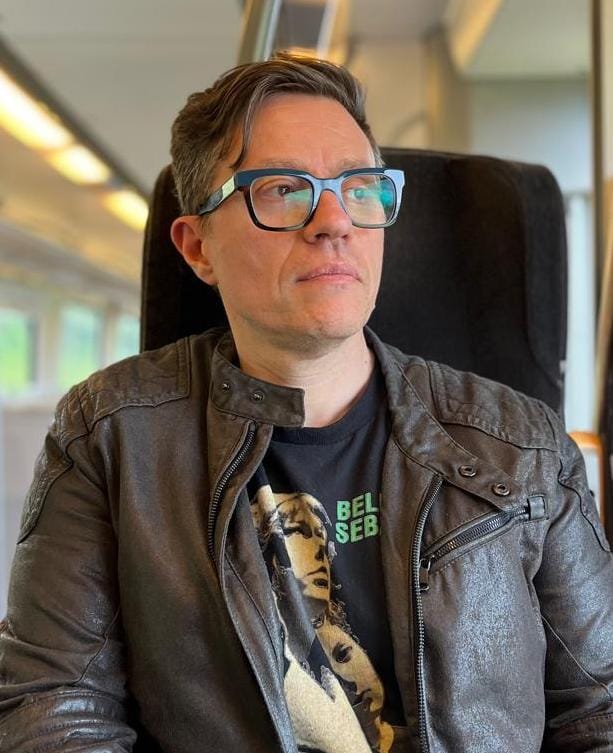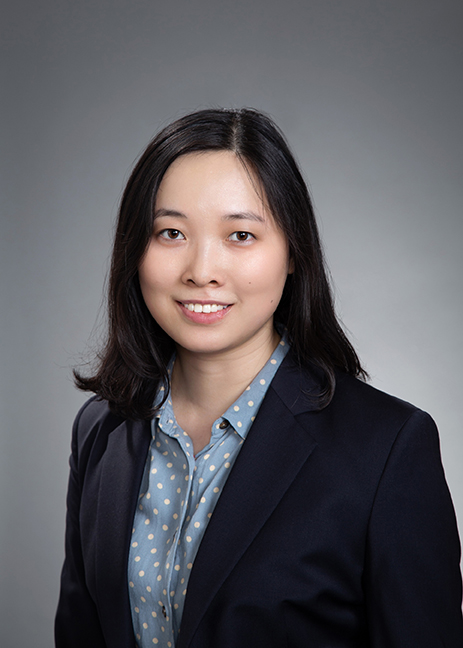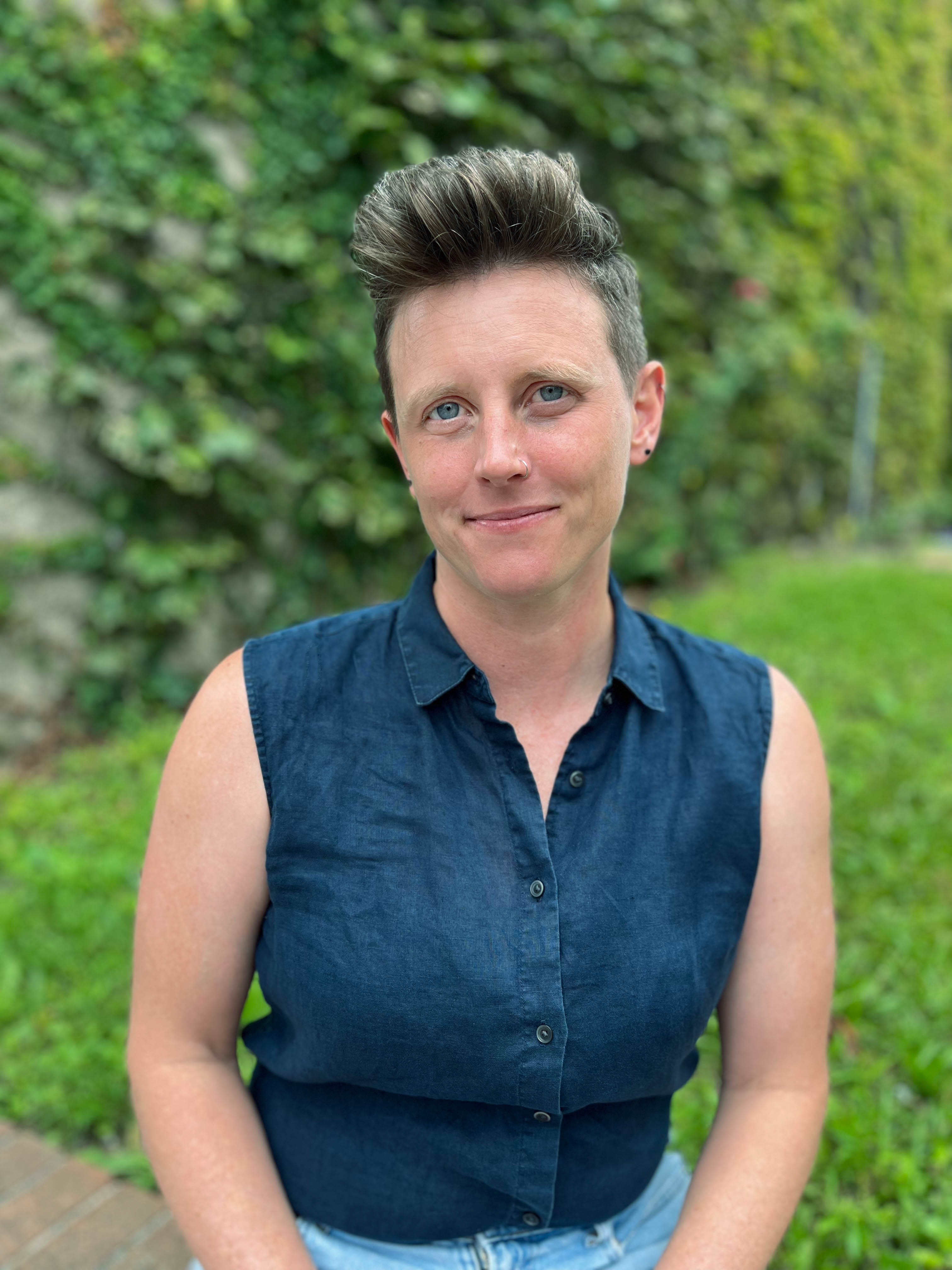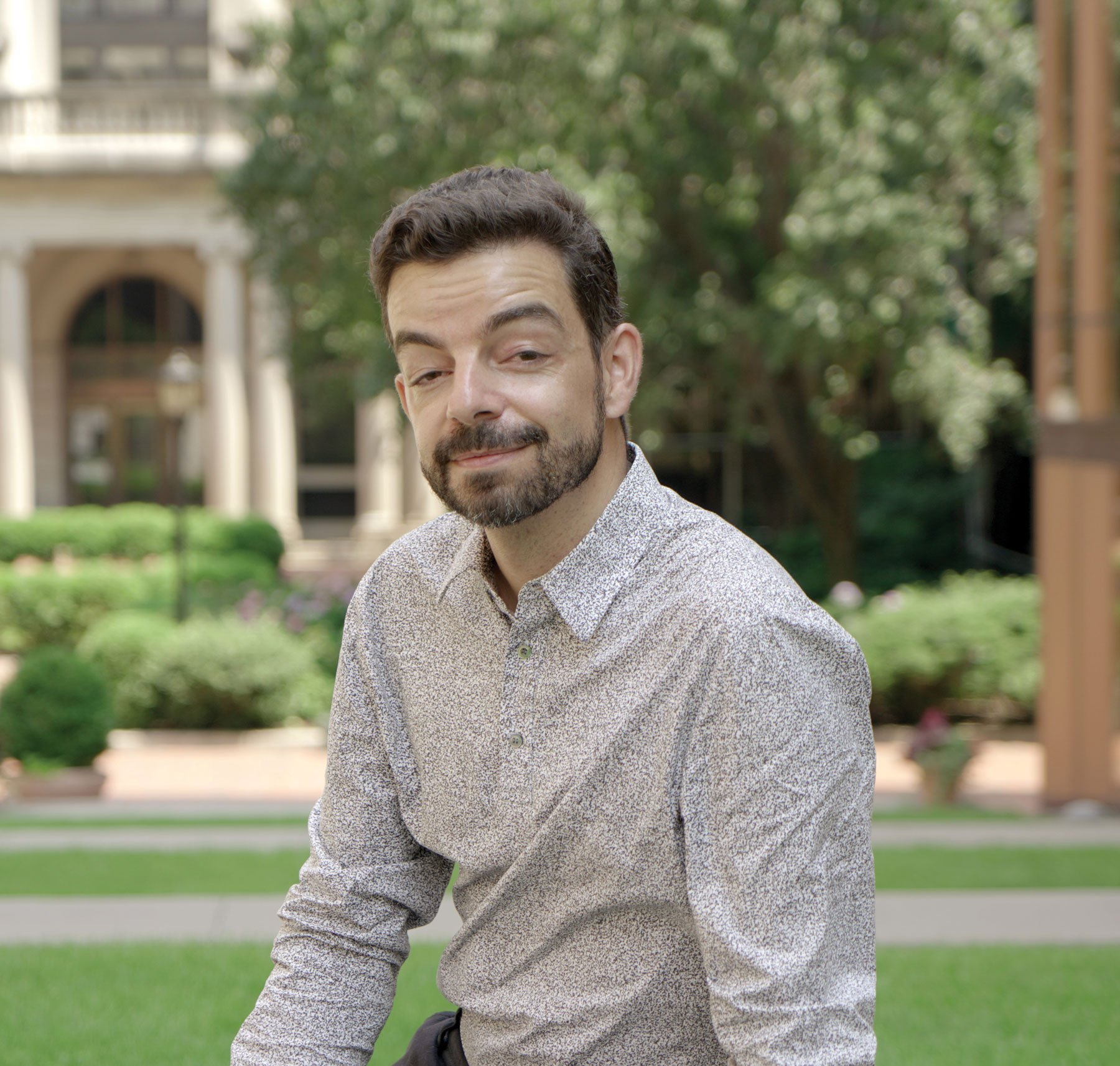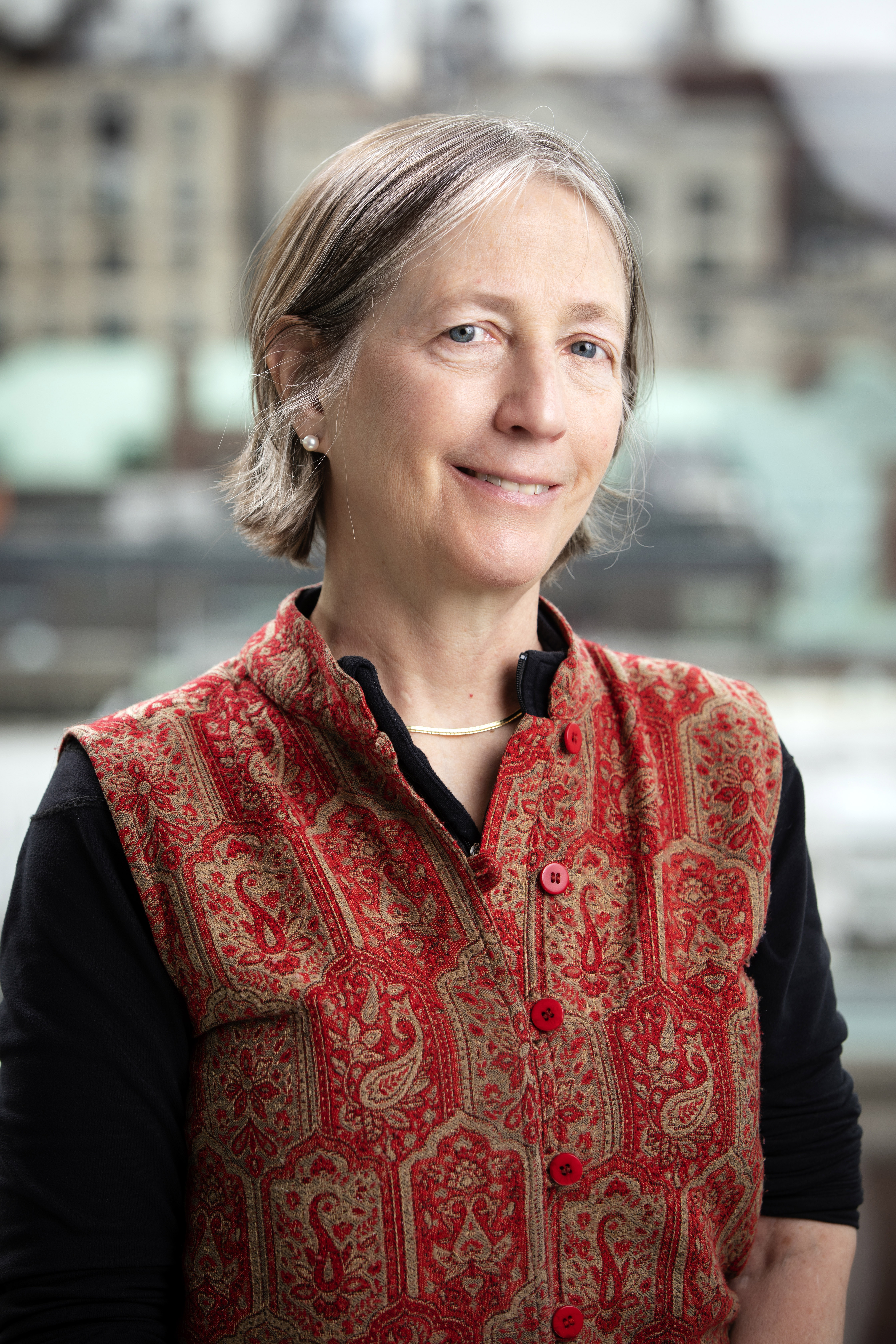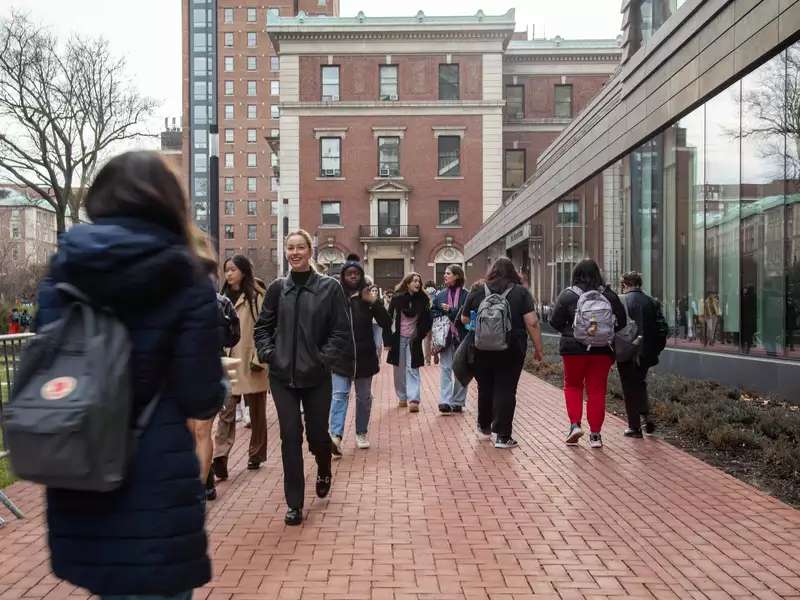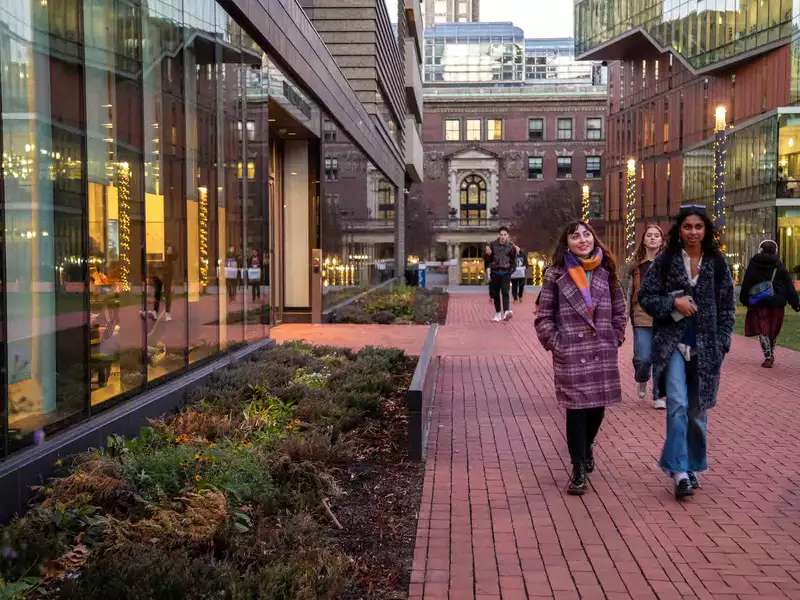Barnard’s esteemed faculty never fail to challenge and expand the learning experiences of every student at the College. From cyberpunk literature to Asian American theatre, topics covered in this new semester bring unparalleled creativity into Barnard classrooms.
Hear from five faculty who share what they’re most excited to teach this spring:
Orlando Bentancor, Latin American Cyberpunk Literature
Associate professor of Spanish and Latin American cultures Orlando Bentancor offers students a course that will address the intersection of inequality and technology. The class will examine how Latin American cyberpunk reflects lived experiences rather than imagined futures. Unlike traditional Western cyberpunk, which speculates about dystopian possibilities, Latin American cyberpunk emerges from communities experiencing technological contrasts and systematic inequalities.
Students will have the opportunity to explore authors such as Jorge Baradit and Erick Mota, to look at Indigenous knowledge systems, and to explore how techno-shamanism offers alternative frameworks for understanding and resisting technological domination. The combination of creative and analytical assignments will allow students to engage with these themes, both critically and imaginatively, as they examine new perspectives on how technology intersects with identity, resistance, and cultural preservation in the Global South.
“What makes this course compelling is its potential to transform how students understand both cyberpunk and Latin American cultural production,” said Bentancor. “By moving beyond the Anglo-American cyberpunk canon, we’ll explore how Latin American authors reshape the genre, blending futuristic elements with local traditions, Indigenous cosmovisions, and regional political realities. Most importantly, class will be fun.”
Yizhou Huang, Asian American Performance
Students are in for a theatrical treat as they examine the close relationship between the American stage and the Asian American experience with assistant professor of theatre Yizhou Huang. Huang will guide students through an exploration of how Asian Americans have fought against false representations in the public sphere. They will learn that Asian American artists — by asserting their own voices — not only perform their unique identities but also complicate, challenge, and enrich the historical and aesthetic development of American theatre and performance.
“I am excited to teach this class in New York. Not only is the City at the forefront of American theatre, it also holds a special place in Asian American history,” said Huang. “My students will experience the most recent development of Asian American theatre in action and visit key cultural sites, such as the Museum of Chinese in America.”
Jennifer Trowbridge, Human Rights and Social Justice in NYC: Migrant Labor, Rights, and Gender
Experiential learning takes full form in term assistant professor Jennifer Trowbridge’s course, as students spend the semester working with members of New York City’s Latinx (Latino/Latina/Latine) immigrant population to focus on discrimination and dangerous conditions in the workplace.
In collaboration with Make the Road, students will look at labor disputes that can positively affect the immigration status of individuals and families. Within the seminar portion of the class, they will analyze how globalization, neoliberal trade policies, and structural inequalities have influenced migration trends, distributions of labor, and the experiences of Latinx migrants and immigrants in the U.S. workforce — including the less publicly visible sectors in which women and queer people tend to work.
“I am particularly enthusiastic about this class because we will be conducting on-the-ground work with a highly empowered section of NYC’s immigrant population at a time of great challenge to the well-being of immigrants and their families,” said Trowbridge. “We will employ ethnographic methods and qualitative data analysis to help advance Make the Road’s campaigns in support of im/migrant Latinx workers in our city.”
Ignacio G. Galán, Disability and Architecture
The relationship between bodies, minds, and the built environment is addressed in assistant professor of architecture Ignacio G. Galán’s course this spring. Students will look at the entanglements between architecture and disability through historical, cultural, and political lenses. They will have the opportunity to explore how different approaches to design have framed diverse experiences and interacted with the agenda of disabled individuals.
“I am particularly enthusiastic about the fact that the course has attracted students from a large number of departments across the College and Columbia University,” said Galán. “The study of both disability and the built environment is at the center of multiple areas of inquiry, and I am thrilled that the classroom will be able to bring them together to shape a robust discussion.”
Students will visit the campus of Gallaudet University in Washington, D.C. — an institution committed to the education of deaf and hard-of-hearing students — a site where multiple architectural strategies have been explored for and by deaf individuals for more than a century. On their field trip, Galán’s students will get an opportunity to explore the university’s archives with deaf architect Jeffrey Mansfield.
Linn Cary Mehta, Changing Climate, Changing World
In the English Department’s adjunct lecturer Linn Cary Mehta’s multidisciplinary course, students will travel through time to examine Indigenous, Renaissance, medieval, and industrial representations of nature, as well as its implications for global warming and biodiversity. Packed with guest lectures from expert theorists, artists, and activists, Mehta’s course will support students in better understanding timely issues of climate change and environmental justice.
“Changing Climate, Changing World will be innovative in several ways, as it will enlarge Barnard’s offerings in environmental studies — especially in the environmental humanities — and include the voices of participating faculty members across Barnard, Columbia, and Princeton,” said Mehta. “It is a team-taught course, and all of these approaches open new possibilities for students at Barnard.”
